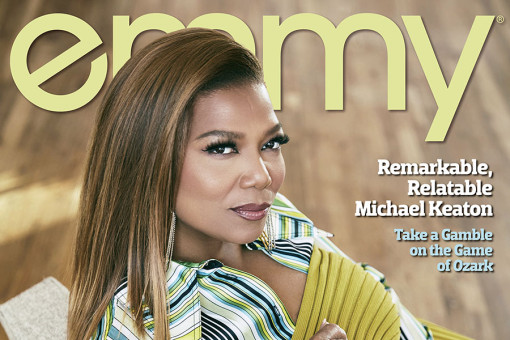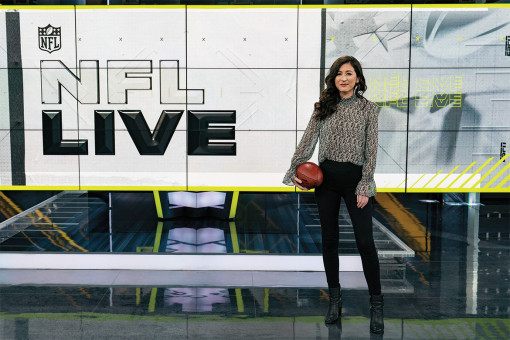Ever since the summer of 1984, there have been two constants in Ralph Macchio’s life: breathing, and being asked to reprise his starring role in that year’s The Karate Kid.
And for 30 years, ever since he agreed to star in The Karate Kid Part III, his answer has been the same: a resounding “No!”
And then, along came Jon Hurwitz, Hayden Schlossberg and Josh Heald. The college buddies had been making names for themselves by writing and producing R-rated comedies, movies that were to the family-friendly Karate Kid what Andrew “Dice” Clay is to Jerry Seinfeld.
Hurwitz and Schlossberg created the Harold & Kumar films, while Heald wrote Hot Tub Time Machine. They seemed unlikely to get Macchio’s blessing for a series that would revive his Daniel LaRusso and William Zabka’s Johnny Lawrence as adults who are still working out their teenage rivalry.
“We pitched him our idea for the whole first season, and I remember him just looking at us and saying, ‘This doesn’t sound like a comedy,’” Hurwitz says. “I think he’d done his research on us and was expecting to hear something completely different. As was most of the television industry, based on all the work we’d done before.”
After decades of passing on all Kid comeback ideas, Macchio eagerly approved of Cobra Kai. “What stood out with their pitch,” he says, “was their passion, the fact that they are super Karate Kid fans, and that they wanted to make a show with great respect for the franchise — that other fans would want to see.”
So many fans, in fact, that the pilot, released free on YouTube last spring, has been viewed nearly 60 million times. Season one earned a 100 percent fresh score on Rotten Tomatoes, and season two bowed this spring. A third seems probable. The secret, Hurwitz says, was finding a new and unlikely hero for their show — the previously villainous Johnny Lawrence.
“For us, that was the way in,” he explains. “We took the Wicked/Better Call Saul approach, taking a character that wasn’t the center of the original story and peeling back the onion. And the closer you get to the center, the more you realize that person has the same issues and insecurities the original protagonist had.
"In this case, we had someone who was treated as a bad guy for 35 years, but when you look closer, you see something else was going on.”
In Cobra Kai, Johnny is a heavy drinker from a broken home who is struggling to get his life together by opening his own dojo. As he starts mentoring a new crop of karate kids, his sworn enemy, Danny LaRusso — now a successful car dealer and family man — gets wind of Johnny’s return, and old resentments resurface.
“We took something that really worked in the original Karate Kid — a tried-and-true underdog story — and treated it seriously, but with a little dark comedic twist, in that the new Mr. Miyagi character is this alcoholic screw-up,” Heald says. “And by the way, if you’d learned more about Mr. Miyagi in the original, who knows what might have happened? We didn’t know that much about him at first, either.”
Fifteen years ago, when Heald, Schlossberg and Hurwitz were just beginning their careers, they talked about making a movie from Johnny’s point of view. Not only were they unknowns then, but Macchio and Zabka were not exactly boxoffice draws, either. Then, when the Karate Kid franchise was successfully rebooted in 2010 with Jaden Smith, they figured their take was dead, until…
“We saw what happened with Fuller House on Netflix, which became this huge hit using the original actors, who hadn’t been in anything for a while,” Hurwitz relates. “They trusted that the audience who loved the show would come back. So we thought, maybe because Fuller House was successful, other outlets would allow us to do a take on Karate Kid that didn’t just recreate it.”
Their search for the rights led them to Sony and Will Smith’s production company, Overbrook Entertainment, which had been behind the 2010 reboot. The reaction was positive, as long as Heald, Hurwitz and Schlossberg could get the original actors on board. While Macchio took some convincing, Zabka had worked with Heald on Hot Tub Time Machine and was instantly intrigued.
“Conceptually, I connected with Cobra Kai immediately,” Zabka says. “I had some questions regarding the tone and direction, but overall, I was captivated by their vision and that this wasn’t a nostalgia grab. It was a fresh idea.”
Taking the series to YouTube instead of a traditional network added to the appeal. First, the show “isn’t beholden to running times,” Hurwitz says. Each season consists of 10 half-hour-ish episodes, so that’s more than five full hours. “We can tell smaller stories within a bigger narrative,” Heald notes. “There’s 15 main characters, and we can explore each of them.”
The new additions include Danny’s daughter, Samantha (Mary Mouser); Johnny’s estranged son, Robby (Tanner Buchanan); and prized new student Miguel (Xolo Maridueña).
As much fun as it was to get Danny and Johnny battling again, Schlossberg says, it was equally entertaining to “develop a whole new cast of teen characters that can connect with a young audience, the way we connected with Johnny and Daniel back in the day.”
Now that Cobra Kai has revived The Karate Kid, Hurwitz, Schlossberg and Heald realize they’ve become the Danny LaRussos of Hollywood — feisty underdogs who took on a challenge nobody expected them to win and emerged victorious.
“We knew we had a scrappy show, so we just needed to make it as earnest and rich and action-packed as possible,” Hurwitz explains. “Then it’s out of our hands, and you just hope it breaks through. Our first season was above and beyond, and now more eyes are on us, with expectations beyond what they were before.”
This article originally appeared in emmy magazine, Issue No. 6, 2019














